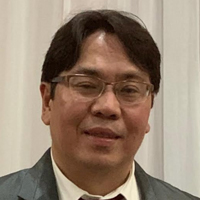

The Philippines has been on lockdown, and stories about lost jobs and empty food shelves have become commonplace. In a matter of two months, most of the country was leveled economically by COVID-19. It did not differentiate between laborers and business owners. Everyone felt the financial brunt of closed offices, shuttered stores, and empty streets.
Ramadan had to be observed while in the middle of these quarantine measures. Practicing Muslims restricted food and drink, and abstained from vices and physical contact, all in the hopes of achieving the rewards promised by Allah (swt) to those who sincerely completed the fast. While reflecting, I came upon Quranic verses that altered my perspective regarding the post-COVID-19 scenario we will all be facing in the next months.
One of the benefits of a Muslim who was able to complete the days of fasting is the reward of having his past sins forgiven. He is likened to a newborn baby free of sin. After the monthlong deprivation, we are given a chance to start anew, and to live a life without the burden of our transgressions.
Looking at the COVID-19 pandemic and all the hardships it had caused Filipinos, I realized that this health crisis can be looked at in a positive way. Similar to the sacrifices that Muslims have undergone during Ramadan, we can shift our perspective and view the sacrifices we did while under quarantine as a way to cleanse ourselves and prepare for another chance at life. (READ: [REFLECTIONS] Ramadan and isolation in the time of COVID-19)
In an online brainstorming session done by the officials and employees of the National Commission on Muslim Filipinos, we discussed the socioeconomic trials that the communities will be facing post-COVID-19. Those who were above the poverty line or had small trading businesses are now among those in need of financial and relief assistance. One thing that we saw was the glaring need to design a socioeconomic program for the Muslim communities, one that would address the loss of income, and one that would promote the Islamic way of life.
There were many suggestions, and we decided to contemplate what the approach should be. The people working in the Commission became painfully aware of what kind of life majority of the Muslim communities are experiencing all over the Philippines, and maybe now is the time to set things right. The stigma against Muslim FIlipinos, the absence of educational and financial opportunities, and an economy geared towards riba (usury) are all issues that can be addressed now that COVID-19 has leveled the playing field for everyone.
The term “New Normal” has been tossed around, and maybe in this sudden turn of events, Muslim Filipinos may be given a better chance to integrate ourselves into a country predominantly inhabited by non-Muslims. The constant reminder to maintain personal cleanliness, and the need to cover up, are all part of Islamic culture that is now shared by the entire country. The Balik Probinsya Program, which aims to return the people to the provinces in order to cultivate land, opens the possibility of financial growth among the Muslim urban poor. And, with the corporate industry humbled by the effects of the lockdown, interest rates that are imposed on the public have been controlled by the government in order to avoid the total collapse of an already fragile economy.
Ramadan gives us the opportunity to move closer to Allah (swt), and to contemplate on our sins. Many have offered duas (prayers) and additional charitable works for the virus to be wiped out, and for our lives to resume to the way it was. But what if this is not the plan of Allah (swt) for his servants? What if this scourge was sent down to humble an arrogant world, and to remind us all that both blessings and trials are from Him alone? True Believers will not question why COVID-19 had spread to almost all corners of the planet. Instead, in the midst of our prayers during Ramadan, we must try to understand what we must do to help heal one another and our world. We must remember that there are other trials and tribulations facing all of us, such as wars, oppression, and extreme poverty, which are meant to test us and our faith.
“And certainly, We shall test you with something of fear, hunger, loss of wealth, lives, and fruits, but give glad tidings to As-Saabiroon (the patient). Who, when afflicted with calamity, say: ‘Truly, to Allah we belong and truly, to Him we shall return.’” (al-Baqarah 2:155-156)
Ramadan will be ending soon. This pandemic, however, will most likely persist until 2021. This is our chance to rejuvenate ourselves spiritually, and the perfect opportunity to build a better life among Muslim Filipinos. It is not the end if we accept the “New Normal.” It is but a way for us to redefine who we are as a nation, focus on what is good for the majority, and open our minds to the possibility of wealth and prosperity in a manner taught to us by our one true God. – Rappler.com
Dr Dimapuno A. Datu-Ramos Jr is spokesperson of the National Commission on Muslim Filipinos or NCMF. He is also Director IV of the NCMF's Bureau of External Relations.